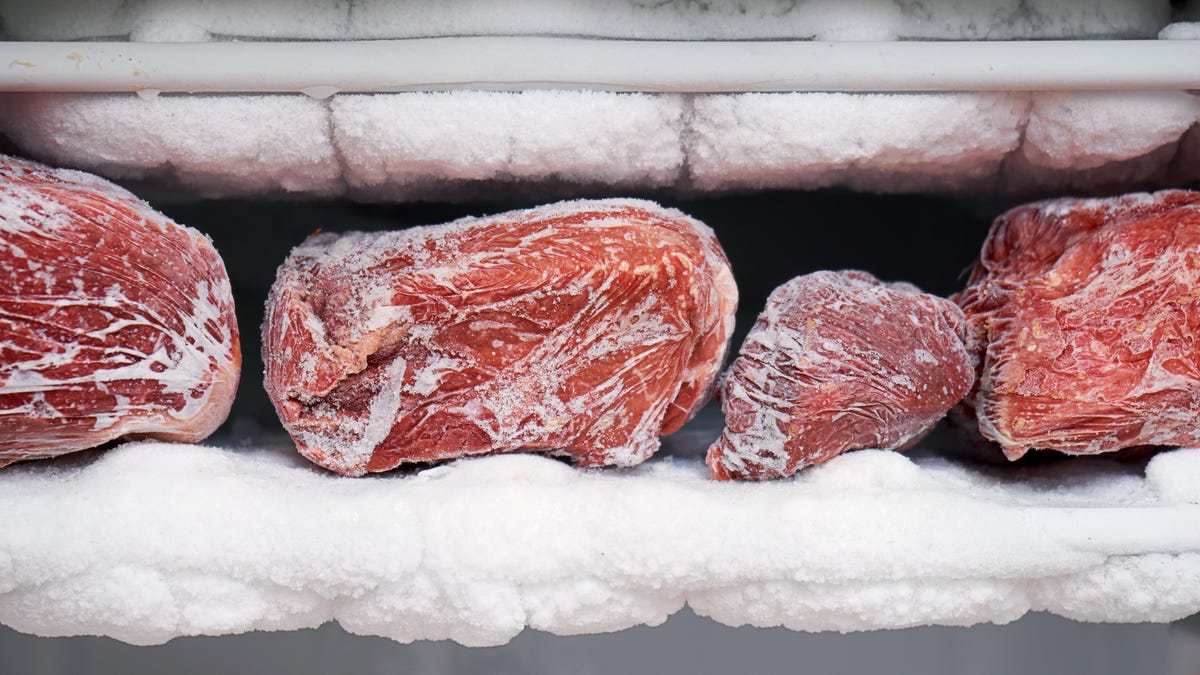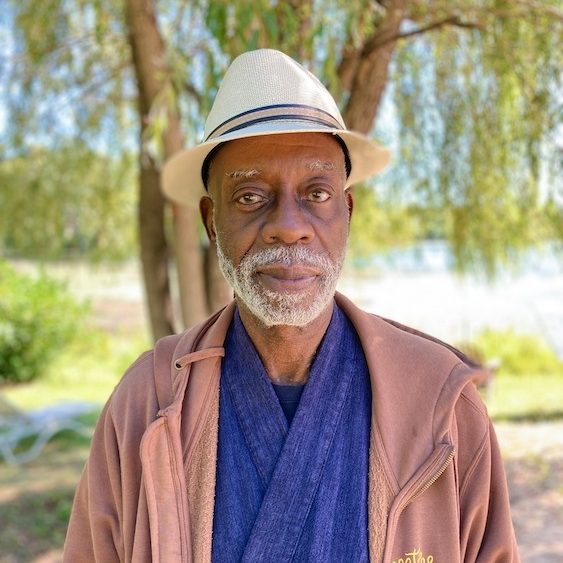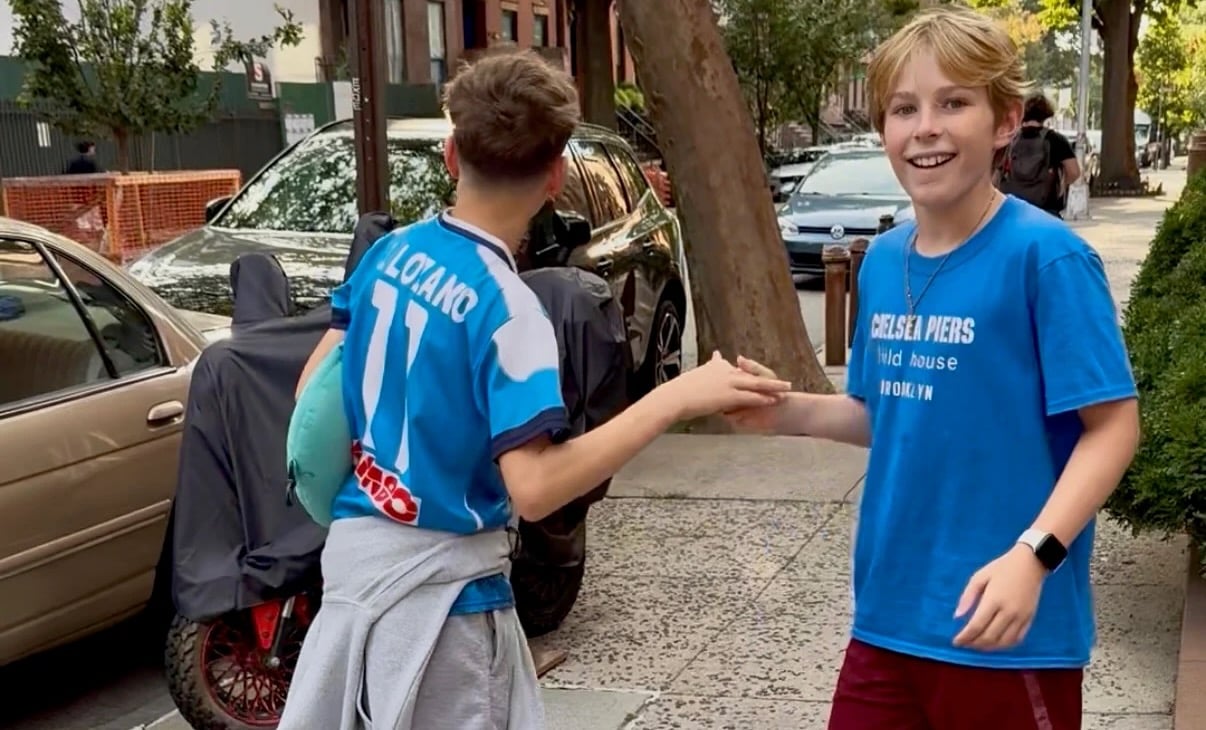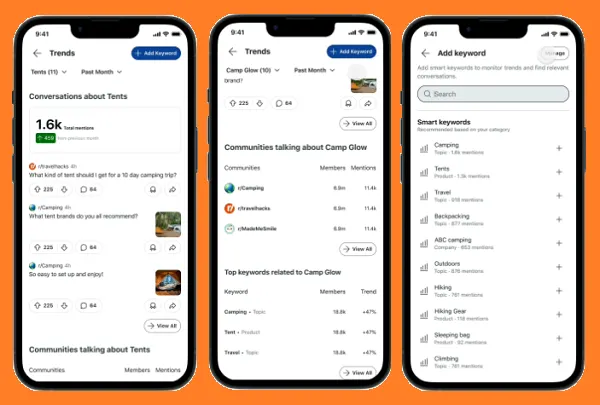How to Stop a Panic Attack With Frozen Meat
I’m all about “it’s not TMI, it’s transparency,” which is why TikTok is the best social network—a place where people have no problem getting nakedly confessional in 15 seconds or less. It’s also a wonderful place to explore the...


Photo: Georgy Dzyura (Shutterstock)
I’m all about “it’s not TMI, it’s transparency,” which is why TikTok is the best social network—a place where people have no problem getting nakedly confessional in 15 seconds or less. It’s also a wonderful place to explore the more...unconventional side of wellness and mental health trends. My phone and/or TikTok account may or may not have been listening in on a recent therapy session wherein my therapist and I were talking about my pandemic panic disorder and the hot new coping strategy on the street these days: polyvagal theory, also known as nervous system hacking.
What are we hacking now?
Basically, the theory goes that you can talk to yourself all you want about how you’re not actually being chased by monsters, but your body—or rather, your brain—does not care, and is going to send you into flight, fight, freeze, or fawn mode whether you’ve taken a deep breath or not. Dealing with these adrenaline rushes of panic, then, requires rewiring of your nervous system’s automatic responses.
My therapist sent me this podcast about it and I listened to it twice, trying to absorb as much as I could. I thought it sounded cool and I was for sure going to look into it, as soon as I got back from vacation. Then something happened and it reactivated a little bit of my trauma response. Then I had a trauma anniversary. Then my anxiety attacks, previously well managed, snuck up on me again.
Ice your boobs to reduce stress?
Soon I was walking around my house buzzing and crying and not eating and not sleeping. To disassociate, I went on TikTok and saw this video of a lady sticking frozen beef down her shirt, followed by other videos of people sticking cups of ice in their sports bras, people saying “vagus nerve,” and “polyvagal theory,” and “panic attack,” and “trauma” over and over.
G/O Media may get a commission
When I panic, my mind goes offline. Thoughts—the way I make my living—stop. I needed a way to come back, somehow. So I filled a mason jar with ice, wrapped it in a baby washcloth, and stuck it in my bra. My son said, “You’re acting weird.” He was not wrong. But immediately, I felt right again.
Is it the placebo effect, or the real deal?
Surely this is just the placebo effect at work, right? I had to find out. I began asking therapists their thoughts, researching the vagus nerve, and icing my boobs as necessary. As always, the internet is torn on whether or not this viral hack is a “pro tip” or simply, well, hacky. True, many of the so-called experts on TikTok are not licensed mental health professionals. Several are mere humans trying something that works for them, and, as they say, if it feels good, do it. To a point, anyway.
It’s worth noting that many of these content creators proclaim themselves to be professional mental health experts, even if they don’t hold any advanced degrees or haven’t undergone specialized training. They make money off of people’s mental health crises. Be wary of these “coaches,” “gurus,” or “docs.” Panic attacks often mimic symptoms of other life-threatening health conditions like heart attacks, and it is always better to get checked out by a real doctor and be told you have anxiety than to self-misdiagnose a cardiac condition. If you are experiencing severe mental health distress and have thoughts of suicide or hurting yourself or others, seek help immediately by calling 911 or a Suicide Prevention Hotline.
There’s some truth to the theory
Therapists say there is a scientific and therefore real reason the ice on the chest trick does work to calm you down. “Putting ice, frozen food, or something cold can help stop or prevent panic attacks. In therapy terms, it’s called ‘grounding’—engaging one or more of your senses as a form of distraction,” says Lindsey Mannon, a LCSW of Malaty Therapy in Texas. You stop focusing on your anxiety when you can focus on the cold instead.
Another therapist explains the nervous system’s response to cold: It, ”restricts blood vessels, and activates the vagus nerve,” says Christina P. Kantzavelos, a LCSW psychotherapist in Joshua Tree, California. “When the vagus nerve is activated it takes you out of the sympathetic response (fight or flight) into a parasympathetic response (rest and digest) and slows down your heart rate.” Basically, it makes you able to deal with your stress instead of continuing to spiral further.
Other “ice therapy” methods like ice baths or cold showers have been making the viral rounds, and there is in fact clinical and anecdotal evidence that they can help people with anxiety and panic attacks. However, it won’t work for every person or eery panic attack. “If you shock your body too much while it is already in a vulnerable state, it may take longer to get rid of the panic attack,” says Chris Tompkins, a psychologist and author. Other grounding exercises might be more effective.
Substantive treatment is more important than ice powers
Keep in mind that, “it is important to know that although [ice] is a tool, it does not replace therapy to address the underlying concern of why the panic attacks are occurring in the first place,” Kantazavelos says. While it might feel good to ice your chest in a moment of stress (and if it does, go for it), it’s also important to investigate why you’re reaching for into your freezer in the first place.
Instead of seeking solace only in TikTok, consider talking to a therapist, a good friend, or a loved one. Feeling like you’re so anxious you need to cool down isn’t “normal,” even in these never-ending “unprecedented times.” You deserve relief a little more comprehensive than rapidly thawing some meat on your sternum.

 Aliver
Aliver 
































